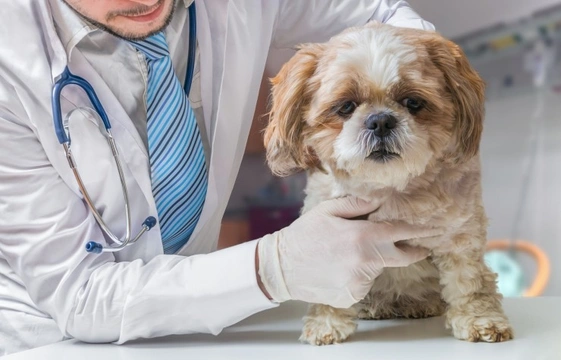
What standard veterinary care do dogs need?
Sharing your life with a dog can be highly rewarding for people of all ages and from all walks of life, and for many people, their dogs are one of the family and their best friends too! Dogs provide a lot of joy and enrichment to the people that own them-as well as the sometimes more challenging sides of ownership such as training, having to go out walking in all weathers, and cleaning up after your dog!
However, dog ownership is also a big responsibility in terms of the cost in both time and money, and one of the most expensive aspects of dog ownership can be covering their lifelong need for veterinary care and preventative treatments and services to keep your dog in good health.
In this article, we will look at all of the various different elements that make up standard preventative veterinary care for dogs, and which are necessary to keep your dog fit and healthy. Read on to learn more.
Spay and neuter
First of all, whether you buy or adopt a young puppy or an adult dog, one of your first responsibilities is to have them spayed or neutered as soon as they are old enough, if this hasn’t been taken care of already.
Unless you have a clear and well thought out plan to breed from your dog and your dog is a good example of their breed with desirable traits and a lot of demand for your future litter, spaying or neutering is the only responsible choice.
Neutering your dog will of course remove the risk of them mating, and it can also protect them against reproductive health conditions too-and settle down their behaviour!
Vaccinations
Your new dog or puppy should not be allowed outside to meet other dogs or walk in areas that are trafficked by other dogs until they have had their vaccinations, and the initial set of vaccinations for dogs are performed in two stages, in order to promote the appropriate immune response.
After the initial vaccinations have been performed, your dog will need to have booster shots administered on an annual basis, in order to maintain their protection against all of the core transmissible canine health conditions.
You can find out more about the vaccinations offered in the UK as standard and how they work in this article.
Microchipping
Having your dog microchipped can help to ensure that they find their way back to you quickly if they should ever be lost or wander off, but microchipping is not only a good idea-it is also the law!
As of April 2016, it became mandatory for all dog owners in the UK to have their dogs microchipped and registered with up-to-date details of their keeper, and this rule applies to even young puppies that are still with their breeder and that have not gone onto their new homes yet.
Read more about mandatory microchipping for dogs here.
Flea and tick treatments
Fleas and ticks can make your dog’s life really miserable, as well as potentially causing more serious problems such as flea bite sensitivity and tick-borne illnesses. In order to prevent your dog from catching fleas or ticks, they should be treated with the appropriate veterinary-recommended product to suit their individual needs and the area that you live in on a regular basis.
Your vet will be able to talk you through the options and which products are likely to prove the most effective for your dog, and reviewing this every year or so and keeping to the schedule is important!
Preventative worming
Your dog should also be treated with a good quality and appropriate worming product regularly too, in order to prevent them from developing worms, which can make them very ill over time.
Dogs can catch worms through contact with other dogs, by eating something that they have scavenged when out and about on their walks and even in some cases through walking on infected ground-and some worms can be passed from dogs to people and other animals too, so this is very important!
Annual health checks
When your dog goes along to the vets for their annual booster vaccinations, your vet will do much more than just asking you a couple of questions and administering the shot, even if that is all that it looks like they are doing!
Your dog’s boosters also provide an important opportunity for your vet to perform a physical examination of your dog and identify any problems in the making early on, as well as allowing you to ask any questions that you might have and get your vet’s advice on the best way to care for your dog and any changes that have occurred in the last year.
Dental care
Finally, one very important aspect of canine veterinary care but one that is all too often overlooked is dental care for dogs, and it is strongly recommended to begin brushing your dog’s teeth and taking good care of them from their first few weeks with you.
This can help to prevent the need for later dental surgeries and extractions, and are something that your vet can advise you on in terms of the best preventative dental care for your own dog.



